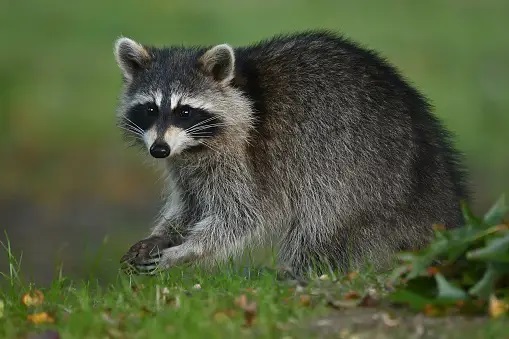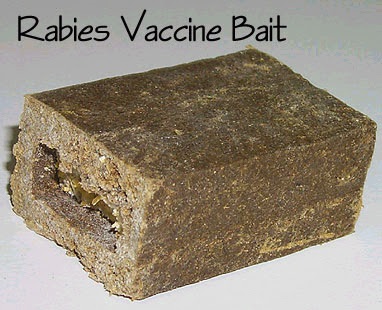Raccoons are among the wildlife that will receive the rabies vaccine bait. (Photo iStockphoto.com)

Cape May County Commissioner Will Morey announced Friday that the Departments of Health and Mosquito Control will be working together to distribute approximately 32,000 vaccine-laden baits throughout the mainland communities of Cape May County.
Most of the bait will be distributed by helicopter and the remaining will be distributed by hand in raccoon habitats, such as storm drains and other areas considered inaccessible from the air. Weather permitting, distribution of bait will commence mid-April until completion.
Health Officer Kevin Thomas informed residents that the bait will have a warning label and include a Cape May County Department of Health telephone number for inquiries and for people to call if contact with the bait occurs.
“This vaccination program will help to reduce the number of animals with rabies such as raccoons and result in fewer encounters between rabid wildlife, pets, and people,” Thomas said.

The vaccine is not harmful to wild animals or pets. Although the exposure risk to humans is very slight, the following information is important:
- Be aware of what the bait looks like.
- Encourage children to leave the baits alone.
- Keep dogs and cats inside or on leashes at least five days after your area has been baited.
- Do not attempt to take bait away from your pet; you may be bitten.
- Wash your hands or exposed skin thoroughly with soap and water if you touch the bait or the liquid vaccine inside the bait.
To ensure that animal rabies is controlled, and that people and pets are protected, pet owners must do their part by vaccinating their dogs and cats against rabies.
Additionally, people should not approach wild animals themselves. Instead, call the local animal control officer for assistance.
Rabies is a fatal disease in humans and any animal bite should be taken seriously. The rabies virus is shed in the saliva of animals that are infected with the virus.
If you are bitten by an animal, wash the wound, seek medical attention immediately, and call the Cape May County Department of Health and your municipal animal control agency.
If you are exposed to a rabid or suspected rabid animal, you must receive rabies shots as soon as possible to prevent the disease. If your pet has contact with a wild animal, contact your veterinarian and the Department of Health right away.
If you have questions about the county’s wild animal rabies vaccination program, call the Health Department at (609) 465-1209.
For more information on animal rabies, go to the Environmental Division at http://www.cmchealth.net and to receive information on public health news and local events, “like” the Cape May County Department of Health on Facebook.
 Cape May County Commissioner Will Morey announced Friday that the Departments of Health and Mosquito Control will be working together to distribute approximately 32,000 vaccine-laden baits throughout the mainland communities of Cape May County.
Most of the bait will be distributed by helicopter and the remaining will be distributed by hand in raccoon habitats, such as storm drains and other areas considered inaccessible from the air. Weather permitting, distribution of bait will commence mid-April until completion.
Health Officer Kevin Thomas informed residents that the bait will have a warning label and include a Cape May County Department of Health telephone number for inquiries and for people to call if contact with the bait occurs.
“This vaccination program will help to reduce the number of animals with rabies such as raccoons and result in fewer encounters between rabid wildlife, pets, and people,” Thomas said.
Cape May County Commissioner Will Morey announced Friday that the Departments of Health and Mosquito Control will be working together to distribute approximately 32,000 vaccine-laden baits throughout the mainland communities of Cape May County.
Most of the bait will be distributed by helicopter and the remaining will be distributed by hand in raccoon habitats, such as storm drains and other areas considered inaccessible from the air. Weather permitting, distribution of bait will commence mid-April until completion.
Health Officer Kevin Thomas informed residents that the bait will have a warning label and include a Cape May County Department of Health telephone number for inquiries and for people to call if contact with the bait occurs.
“This vaccination program will help to reduce the number of animals with rabies such as raccoons and result in fewer encounters between rabid wildlife, pets, and people,” Thomas said.
